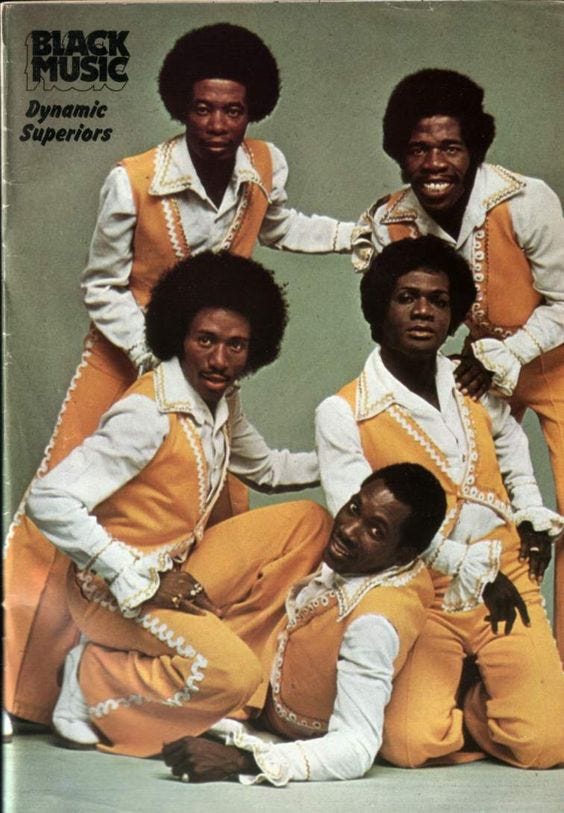Tony Washington: Motown's Openly Gay Shining Star and a Forgotten Supergroup
How Tony Washington helped break barriers for Black LGBTQ+ artists
When you think of the early Motown sound, your first thoughts may be of the sultry croons of Marvin Gaye, the soulful yearning of the Temptations, Diana Ross, the Supremes and a prepubescent Michael Jackson singing alongside his brothers in the Jackson Five. But, long before the days of the glimmering disco sound that exploded after the Stonewall Riots, or anthems that celebrated gay identity— there was a quintet group from Washington D.C. with an openly gay lead singer at the forefront, Tony Washington.
Many music fans know the Dynamic Superiors for their lead single “Shoe Shoe Shine” with Tony’s feathery falsetto floating throughout the soulful ballad, alongside his brother Maurice Washington, baritone singer Michael McCaplin, and tenors George Peterback Jr. and George Spann. The tune skyrocketed on the Billboard charts (written by the legendary Ashford and Simpson). The Dynamic Superiors, however, is also most notoriously known for Tony’s poise, stage presence and for breaking barriers for more queer artists. But unfortunately, the group didn’t receive the flowers they truly deserved.
The group formed in the early 1960s and was discovered by Motown music executive Ewart Abner and signed to the record company in the early 1970s. With the successful hit from their self-titled debut in 1975, the Dynamic Superiors took the world by surprising storm with Tony unapologetically himself. Often serenading to men in live performances, wearing makeup or in drag, and even a live, bold rendition of Billy Paul’s notorious hit gender-swapped as “Me and Mr. Jones.” For the time, it was daring and audacious. But to Tony, this was just his authentic self.
In 1977 for a newspaper interview, he tells The Advocate that he had always known that he was gay and that his family and friends were accepting of him. Also, in a newspaper interview for The New Gay Life in 1977, Maurice Washington said that Tony’s fearlessness of being openly gay was inspiring; “There are a lot more homosexuals there than we think. But, they don’t care to let it out. Quite often after the show they want to meet Tony and want to thank him for being as open as they wish they could be… Tony’s a great inspiration.”
It is often said that the Dynamic Superiors, along with the boom of the disco era, helped to push Black queer identity to the mainstream. Not only just in Motown, but the overall music industry. The same year as the group’s debut, Motown also released Valentino’s “I Was Born This Way.” Following those releases were other popular hits like Diana Ross’s “I’m Coming Out” and the Miracles’ “Ain’t Nobody Straight in L.A.” all becoming staples in the disco scene, alongside booming artists like Donna Summer and Sylvester.
Just as disco progressed to the mainstream, the Dynamic Superiors fizzled out under Motown, releasing their final album with the label, “Give and Take” in 1977. In 1980, without the shimmering lead vocals of Tony, the group released their fifth album “The Sky’s the Limit” under Venture Records right as the disco era had come to an infamous halt.
In 1989, Tony Washington died from reported complications from AIDs, and George Spann joined a rendition version of the Dynamic Superiors called The Flamingos in the early 2000s.
LGBTQ+ artists today like Janelle Monáe, Frank Ocean, Tyler the Creator or Kehlani are often praised for their courage for being their genuine selves, and their advocacy. And despite the short-lived glory of the Dynamic Superiors, Tony Washington daring to live in his truth, and his eternal voice on timeless hits like “Nobody’s Gonna Change Me,” is who we have to thank for that.





